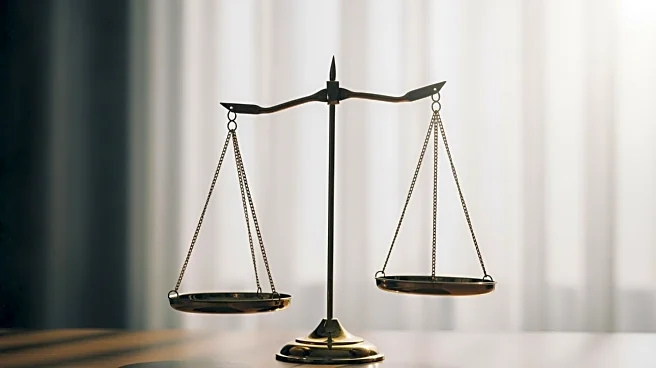What's Happening?
WPP, a major advertising and public relations company, is facing a class action lawsuit in the United States. The lawsuit accuses WPP of disseminating materially false and misleading statements and concealing
adverse facts about the true state of its media arm. These allegations are linked to a profit warning issued by the company in July. WPP has announced its intention to vigorously defend itself against these claims, asserting that the accusations are unfounded. The lawsuit represents a significant legal challenge for WPP, which is a prominent player in the global advertising industry.
Why It's Important?
The lawsuit against WPP is significant as it highlights the potential legal and financial risks faced by large corporations when investors allege misinformation. If the claims are proven, it could lead to substantial financial penalties and damage to WPP's reputation, affecting its business operations and investor confidence. This case underscores the importance of transparency and accurate reporting in corporate communications, which are crucial for maintaining trust with investors and stakeholders. The outcome of this lawsuit could set a precedent for similar cases in the advertising industry, influencing how companies manage investor relations and disclosures.
What's Next?
WPP's legal team is expected to prepare a robust defense to counter the allegations in court. The proceedings will likely involve detailed examinations of WPP's communications and financial disclosures. Investors and industry analysts will be closely monitoring the case, as its outcome could impact WPP's stock performance and strategic decisions. Additionally, other companies in the industry may review their own disclosure practices to avoid similar legal challenges. The case may also prompt discussions on regulatory standards for corporate transparency and investor protection.
Beyond the Headlines
This lawsuit raises broader questions about corporate governance and the ethical responsibilities of companies in their communications with investors. It may lead to increased scrutiny of how companies report financial information and manage investor expectations. The case could also influence regulatory bodies to consider stricter guidelines for corporate disclosures, aiming to prevent misleading statements and protect investor interests. Furthermore, it highlights the role of legal systems in holding corporations accountable for their actions, potentially leading to more vigilant oversight in the industry.








